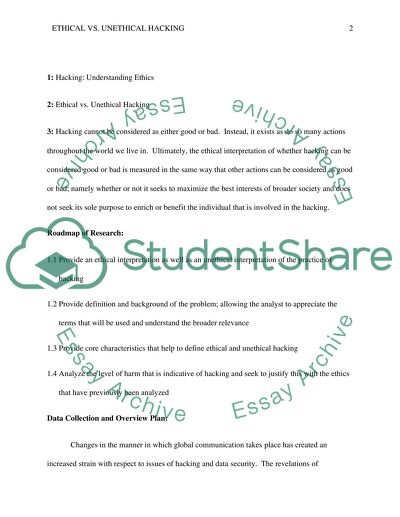Cite this document
(“Ethical v. unethical hacking Research Paper Example | Topics and Well Written Essays - 2500 words”, n.d.)
Ethical v. unethical hacking Research Paper Example | Topics and Well Written Essays - 2500 words. Retrieved from https://studentshare.org/information-technology/1648756-ethical-v-unethical-hacking
Ethical v. unethical hacking Research Paper Example | Topics and Well Written Essays - 2500 words. Retrieved from https://studentshare.org/information-technology/1648756-ethical-v-unethical-hacking
(Ethical V. Unethical Hacking Research Paper Example | Topics and Well Written Essays - 2500 Words)
Ethical V. Unethical Hacking Research Paper Example | Topics and Well Written Essays - 2500 Words. https://studentshare.org/information-technology/1648756-ethical-v-unethical-hacking.
Ethical V. Unethical Hacking Research Paper Example | Topics and Well Written Essays - 2500 Words. https://studentshare.org/information-technology/1648756-ethical-v-unethical-hacking.
“Ethical V. Unethical Hacking Research Paper Example | Topics and Well Written Essays - 2500 Words”, n.d. https://studentshare.org/information-technology/1648756-ethical-v-unethical-hacking.


